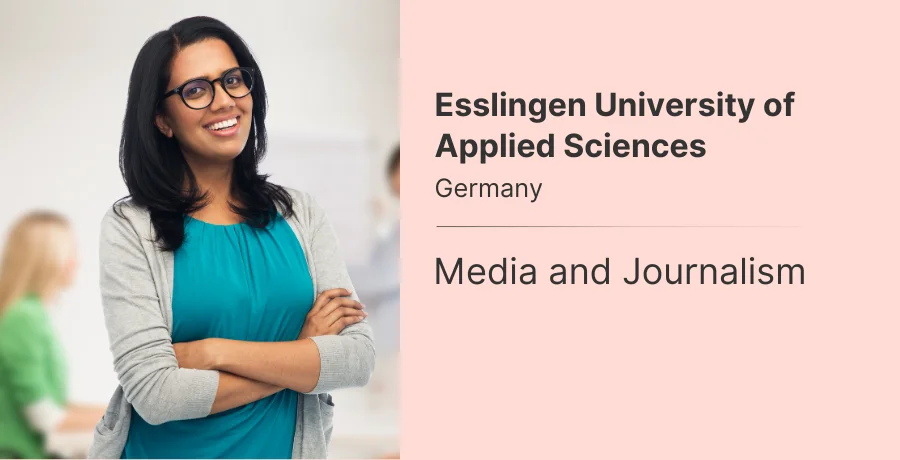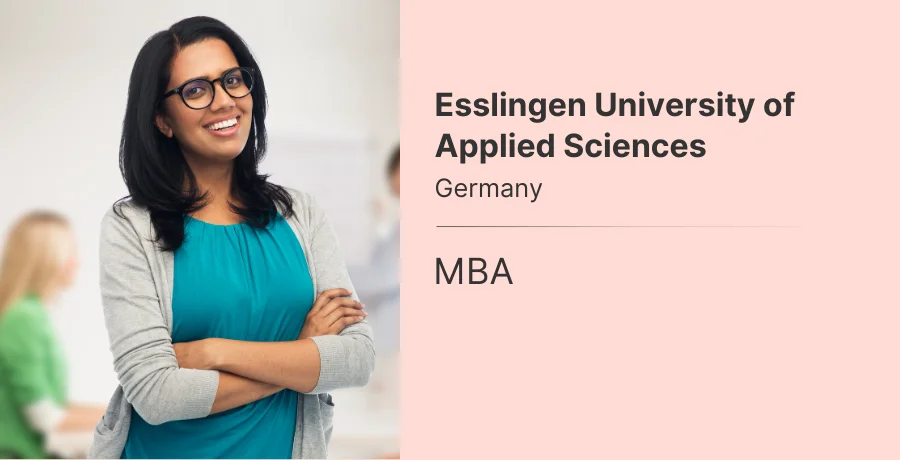Dresden University of Technology – Highlights
Dresden University of Technology, also known as Technische Universität Dresden (TUD), was established in 1828 and has since grown to become one of Germany's leading institutions. Renowned for its exceptional research and teaching, TUD is ranked among the top universities globally. Its QS World University Ranking is consistently impressive, reflecting the university's commitment to excellence in higher education. The campus is equipped with state-of-the-art facilities, providing students with a conducive learning environment. The university's faculty comprises experienced and distinguished experts in various fields, ensuring a high-quality education for all students. TUD is well-funded, enabling it to support cutting-edge research and innovative projects. It is also accredited by reputable educational bodies.
- Year of Establishment: 1828
- QS Ranking: Consistently ranked among the top universities globally
- Other Rankings:
- Top 10 in Germany
- Top 100 in Europe
- Top 200 worldwide
- Top 50 for Engineering and Technology
- Top 100 for Natural Sciences
- Infrastructure: State-of-the-art facilities
- Teaching Faculty: Experienced and distinguished experts
- Funding: Well-funded for research and projects
- Accreditation: Accredited by reputable educational bodies
Dresden University of Technology – Rankings
- QS Ranking: Consistently ranked among the top universities globally
- Other Rankings:
- Top 10 in Germany
- Top 100 in Europe
- Top 200 worldwide
- Top 50 for Engineering and Technology
- Top 100 for Natural Sciences
- National Rankings: Dresden University of Technology is consistently ranked among the top 15 universities in Germany, particularly noted for its engineering and technology programs.
- World Rankings: Globally, it ranks within the top 150-200 universities, recognized for its research in engineering, computer science, and natural sciences.
To know more about other universities in the Germany, click here.
Dresden University of Technology - Admissions
Admission to Dresden University of Technology is competitive, with a rigorous selection process to ensure that only the best candidates are admitted. The university attracts a significant percentage of international students, fostering a diverse and multicultural academic environment. TUD follows a semester-based academic calendar with multiple intakes throughout the year, providing flexibility for students. The university boasts a robust infrastructure, including modern classrooms, laboratories, libraries, and recreational facilities.
UG Admissions
- Completion of secondary education with a recognized qualification.
- Proficiency in the German language, with a minimum B2 level certification.
- Submission of a completed application form along with required documents.
- Successful completion of an entrance examination or interview, if applicable.
- Meeting specific program requirements, such as prerequisite courses or grades.
PG Admissions
- A bachelor's degree or equivalent in a relevant field from a recognized institution.
- Proficiency in the German or English language, depending on the program.
- Submission of a completed application form along with academic transcripts.
- Letters of recommendation from academic or professional references.
- Meeting specific program requirements, such as work experience or entrance examinations.
Ph.D. Admissions
- A master's degree or equivalent in a relevant field from a recognized institution.
- Proficiency in the German or English language, depending on the research area.
- Submission of a research proposal outlining the intended area of study.
- Letters of recommendation from academic or professional references.
- Approval from a potential supervisor at TUD who agrees to oversee the research.
Eligibility Criteria
UG Programs
- Engineering: Comprehensive programs in various engineering disciplines.
- Natural Sciences: Courses in physics, chemistry, biology, and more.
- Social Sciences: Programs in sociology, psychology, and related fields.
- Humanities: Studies in history, philosophy, and cultural studies.
- Business and Economics: Degrees in management, finance, and economics.
PG Programs
- Engineering: Advanced studies in specialized engineering fields.
- Natural Sciences: Research-oriented programs in various scientific disciplines.
- Social Sciences: Graduate programs in sociology, psychology, and more.
- Humanities: Master's degrees in history, philosophy, and cultural studies.
- Business and Economics: MBA and other advanced business degrees.
Dresden University of Technology - Programs
Dresden University of Technology offers a wide range of undergraduate, postgraduate, and Ph.D. programs across various disciplines. The university is committed to providing high-quality education and fostering innovative research.
UG Programs
- Engineering: Comprehensive programs in mechanical, electrical, civil, and chemical engineering.
- Natural Sciences: Courses in physics, chemistry, biology, and environmental sciences.
- Social Sciences: Programs in sociology, psychology, political science, and education.
- Humanities: Studies in history, philosophy, languages, and cultural studies.
- Business and Economics: Degrees in management, finance, marketing, and economics.
PG Programs
- Engineering: Advanced studies in specialized fields like aerospace, robotics, and materials science.
- Natural Sciences: Research-oriented programs in molecular biology, quantum physics, and more.
- Social Sciences: Graduate programs in anthropology, international relations, and social work.
- Humanities: Master's degrees in art history, linguistics, and literary studies.
- Business and Economics: MBA, MSc in Finance, and other advanced business degrees.
Dresden University of Technology - Intakes
Dresden University of Technology offers two primary intakes: Winter (October) and Summer (April). Most programs, particularly in engineering and natural sciences, begin in the Winter, with some master’s programs also available in the Summer intake.
Dresden University of Technology - Acceptance rate
Dresden University of Technology has an acceptance rate of approximately 55-60%, reflecting its broad appeal, particularly in engineering and technical disciplines. The university is known for its strong emphasis on innovation and research.
Dresden University of Technology -Accommodation
On-campus Accommodation
Dresden University of Technology offers a variety of on-campus accommodation options, including dormitories and student apartments. These facilities are equipped with modern amenities and provide a comfortable living environment for students.
Off-campus Accommodation
Students can also opt for off-campus accommodation in nearby residential areas. These options range from shared apartments to private rentals, providing flexibility and independence for students.
Housing Options
- Dormitories, student apartments, shared apartments, and private rentals.
Dresden University of Technology - Cost of Tuition Fees
The cost of tuition fees at Dresden University of Technology is relatively affordable compared to other top universities. The approximate figures for undergraduate and postgraduate programs are as follows:
| Program | Tuition Fees (Approx.) |
|---|---|
| Undergraduate | €500 - €1,500 per semester |
| Postgraduate | €1,000 - €3,000 per semester |
Cost of Living
The cost of living for students in Dresden is reasonable, with approximate figures for essential expenses as follows:
| Expense | Cost (Approx.) |
|---|---|
| Rent, Travel, Utility | €300 - €600 per month |
| Food & Drink, Entertainment | €200 - €400 per month |
Dresden University of Technology - Scholarships
Dresden University of Technology offers a variety of scholarships to support students financially. The top 10 scholarships available, along with the maximum amount offered, are listed below:
| Scholarship | Maximum Amount (Approx.) |
|---|---|
| DAAD Scholarship | €1,200 per month |
| Deutschlandstipendium | €300 per month |
| Erasmus+ Scholarship | €850 per month |
| Heinrich Böll Foundation Scholarship | €1,000 per month |
| Konrad Adenauer Foundation Scholarship | €1,100 per month |
| Friedrich Ebert Foundation Scholarship | €1,050 per month |
| Rosa Luxemburg Foundation Scholarship | €1,150 per month |
| Hanns Seidel Foundation Scholarship | €1,200 per month |
| Leonhard Euler Scholarship | €900 per month |
| Bayhost Scholarship | €1,000 per month |
To know about the Germany study visa requirements, click here.
Dresden University of Technology - Placements
Dresden University of Technology has a strong placement record, with graduates securing positions in top companies and organizations worldwide. The university boasts a high placement rate, reflecting the quality and employability of its graduates. The major job roles with the highest approximate salaries are listed below:
| Job Role | Approximate Salary |
|---|---|
| Software Engineer | €60,000 per year |
| Mechanical Engineer | €55,000 per year |
| Chemical Engineer | €58,000 per year |
| Data Scientist | €65,000 per year |
| Financial Analyst | €50,000 per year |
| Research Scientist | €70,000 per year |
FAQs About Dresden University of Technology
1. What are the language requirements for Dresden University of Technology?
Most programs are taught in German, but English-taught programs require an IELTS score of 6.5 or equivalent.
2. Does Dresden University of Technology offer scholarships for international students?
Yes, various scholarships are available, including those funded by the DAAD and the university itself.
3. What are the most popular programs at Dresden University of Technology?
Engineering, Computer Science, and Architecture are among the most popular programs, known for their rigorous training and research opportunities.
4. Is there on-campus accommodation available at Dresden University of Technology?
Yes, on-campus housing is available, but it is limited, so early application is recommended.
5. What is student life like at Dresden University of Technology?
Student life is vibrant, with numerous technical clubs, cultural activities, and opportunities to engage in cutting-edge research.
Other Universities in Germany that you might be interested in,
- Technical University of Munich
- Ludwig Maximilian University of Munich
- Heidelberg University
- Humboldt University of Berlin
- RWTH Aachen University
- Freie University of Berlin
- University of Gottingen
- University of Freiburg
- University of Hamburg
- Technical University of Berlin
- Karlsruhe Institute of Technology
- University of Stuttgart
- Goethe University, Frankfurt
- University of Manheim
- Technical University of Darmstadt
- EU Business School
- ESMT Berlin












